
Herr Körner
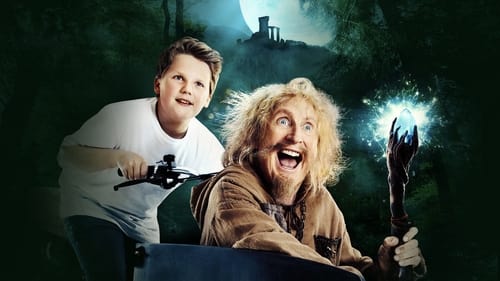
Herr Koslowski
Otto Waalkes plays a magician who strayed into the present from the 11th century and who absolutely wants to return to his time.

Erwin Machalik
Full of anticipation, the young and ambitious Commissioner Carsten Lanner (Florian Lukas) is moving from Berlin Cloppenburg in Lower Saxony for a further education. However, he did not expect the outspoken chutzpah of the Berliners and, above all, the rude nature of his colleagues, who in no way received him with open arms. And so he slips more accidentally than wanted shortly after his arrival in Berlin in his first case.

Grandpa Henner
It's no surprise when Karo is fired. She is loud, over-emotional and egocentric, more so than the average Berliner wise-ass, says her best friend Anna. Karo is not one to give up easily, though: she opts for radical change and goes into therapy. Although her therapist advises her to keep calm, Karo throws herself into it.
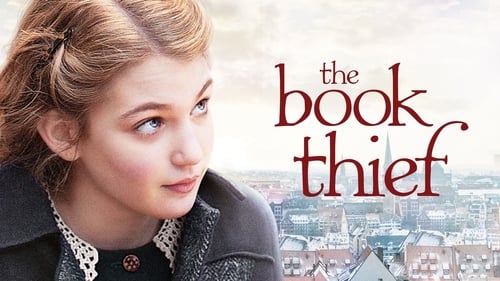
Jürgen the Groundsman
While subjected to the horrors of WWII Germany, young Liesel finds solace by stealing books and sharing them with others. Under the stairs in her home, a Jewish refugee is being sheltered by her adoptive parents.

Vater Feldberg
The comedy about men and their struggles in life and love.

Henry
Many years ago Thaddeus Hartington quarreled with his son David. Now he is seriously ill, but only wants to undergo a risky heart surgery, if he had the opportunity to reconcile with David. His dedicated doctor Kate sets out to find the missing person. She finds him in a small south English town, where he lives with his son Jeffrey. With charm and openness, Kate manages to win David's trust and eventually his heart. However, when he learns that Kate is on his father's behalf, this puts the young love to the test.

1993 drama film.

Stiesel
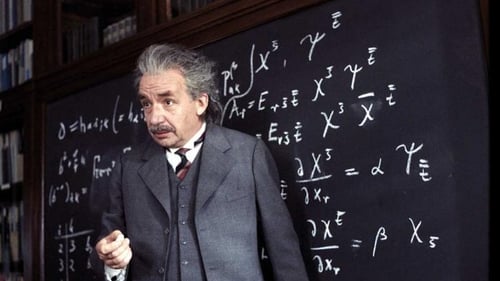
Two part movie about Einstein's escape from Germany in 1932 and his influence in the invention of the nuclear bomb in 1939.

Lehrer Hansen
A small town shortly before the end of the GDR: 15-year-old Ulla lives with her mother in a dilapidated old building where not even the electricity works properly. Economy of scarcity and national bankruptcy are visible everywhere. Only higher party comrades live in the lap of luxury. When Ulla meets Winfried after a summer bathing trip, the two fall in love. Winfried is the son of an influential general director and owns things from West Germany that others only dream of: a computer, a games console, a walkman. On an excursion with her biology class, the high school student discovers that a dacha is being built in the middle of the nature reserve and the creek has been dammed. Winfried's father turns out to be the culprit, but the mayor is on his side. Ulla rebels against this environmental destruction connected to political corruption and organizes a protest. Her activism not only endangers her own future, but also her first great love.

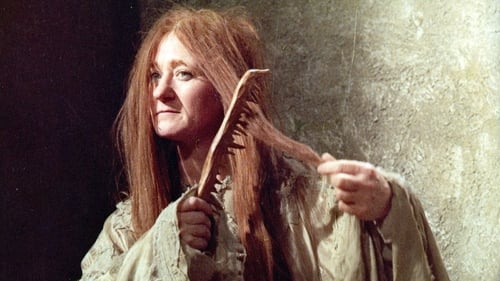
A creature bearing the ominous name "Mishap" is hot in pursuit of an unfortunate lumberjack and eventually decides to live with him. It soon gets bored, however, and asks the lumberjack to hand it over to the rich merchant Habermoos. Habermoos manages to sell Mishap to the king, although he is being attacked by robbers. The king is bankrupt and threatened with war by other countries. Young Michael has to go to war for the king. The creature tries to secretly join him. When Michael gets hold of the situation, he manages to get rid of Mishap once and for all. After all, he has more important things to do. At the last moment, he prevents his girlfriend Kathrin from getting married to the pompous merchant Habermoos.

In a king's kingdom there is a forest so dangerous that every man who goes into it is never heard from again. Iron Hans, who is responsible for the deaths, is found at the bottom of a lake and locked up in the king's palace

Film by Ulrich Thein.

This biographical film is set in 1937, with Fallada suffering the effects of living under a microscope. The film details his decline, as he is intermittently imprisoned and threatened in order to motivate him to write for the Fatherland. Even the attention of his kind, patient wife and loving children begin to feel oppressive to him. This is one of the few films to take a serious, in-depth look at the tribulations of a creative artist pulled in all different directions by the real world.

Gecko
Defectors from Hitler's army join the French Foreign Legion and end up in Vietnam in the late '40s.

Alfons lives with his grandparents on a Silesian village farm at the end of WWII. He adores his grandmother, who runs everything after her husband dies. But everything changes after the appearance of a traveling showman in the xenophobic village.

Bauer Alex
On the way to summer camp, eleven-year-old Lena develops a crush on Wolfgang, but Antonia is interested in him too. Although Lena and Wolfgang grow closer to each other, camp director Eichler disapproves of their relationship and tries to split them up by assigning them to different groups. The conflicts escalate until one night, during a disco event, Lena suddenly runs away.
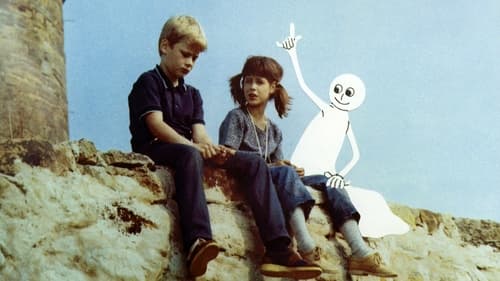
Carola is a mischievous girl who doesn't care much for school- except for sports and recess, of course. Without her good friend Willi to keep her on the straight and narrow, she would really be in trouble. One day at school, Carola has an idea. She invents what she calls "International Ghosts' Day" and a ghost named "Buh" to go with it. When Buh turns out to be less-than-imaginary the two decide to switch places, with Buh taking on all the schoolwork, and Carola taking the opportunity to play practical jokes on all her friends...

Emil Brandenburg

The furniture mover Stefan is on the verge of serving his time in the military. He has always been a guy with distinctive civil courage who cannot stand injustice. Now he has ten days left in which he plans to make a lot of decisions, not least the decision with which woman he wants to spend his life. Stefan is picky, however, and none of them seems good enough for him.

Two farmers, Grimm and Melcher, were once on friendly terms, but a petty argument over a piece of land has since turned them into implacable enemies. Their two children- Veronika and Fabian- used to be childhood friends. When they meet again as young adults, they instantly fall in love, despite the bitter feud between their families. With no hope for a future together, the two seek to end their lives in this retelling of the classic story by Shakespeare.
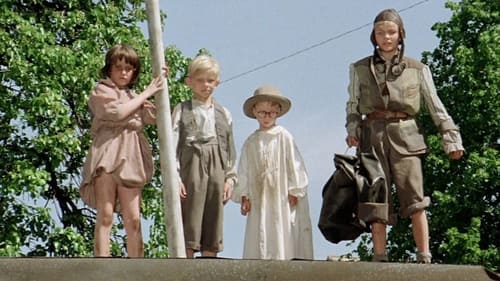
This children's adventure movie is a charming tale of a group of youngsters in Prague who hear that Soviet sailors abandoned their failing ship in the Arctic Sea before it went down, but no one had been able to find the sailors yet. Inspired by the efforts to save the men, the youngsters strike out on their own to help in the rescue attempt.

Maja Wegner is in her late thirties and a single mother of a teenage daughter. To give her stale life a new direction, she decides to start all over again in the big city. She sells her house in the countryside, quits her job, and moves with her daughter to Berlin. There, she finds a job as a conductor for the railroad company. Although Maja soon finds new friends in her apartment building, the search for a new life partner does not come off so easily.

19-year old Benjamin, called Ben, works as a cashier on the fairground und is impressing girls with his youthful self-confidence. After an argument with his uncle, who had caught the boy with a 16-year old girl, Ben leaves his familiar surroundings und ventures into the world beyond the fairground. At Berlin′s Ostbahnhof, he meets the much older cookmaid Hanna, who puts homeless Benjamin up in her flat. Ben finds work as a welder in a factory where he at first has to cope with the prejudice of his sceptical co-workers.
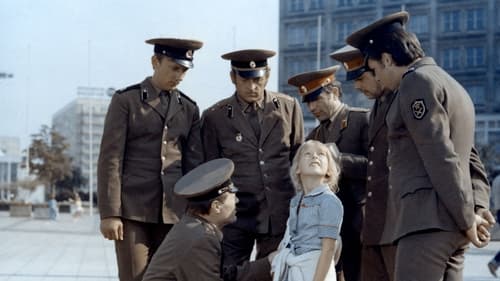
Little Sabine has spent her childhood in an orphanage after her parents died in a car accident. When one of the women in charge at the orphanage, Edith, leaves to have a baby, Sabine runs away, because Edith was the only adult there she could trust. She then wanders through the city to find someone to take her in. She meets a lot of people on her journey, but she seems out of place everywhere she goes until, at last, she realizes that there is a special place where she belongs.

Otto Scheidel (Manfred Krug) has been captain of the Elbe steamer Jenissei for over twenty years, but his ship, the last of its kind, is going to be converted into a floating restaurant. Otto, whose his strong attachment to the ship has already cost him his relationship with his girlfriend Caramba (Renate Krößner), refuses to take another job and instead joins a railway construction brigade.

A communist is released from prison in 1935 Hamburg. He tries to link up with the Party again, but is unsure as to who he can trust, and has difficulty adjusting to life in Nazi Germany.

Erschöpfter
On a forest road in the Brandenburg March, village teacher Potsch accidentally encounters the distinguished Professor Menzel, who got stuck there in his car. In the conversation that ensues, Menzel and Pötsch quickly discover that they both are great admirers of the early 19th-century writer Max von Schwedenow who was born in the area.
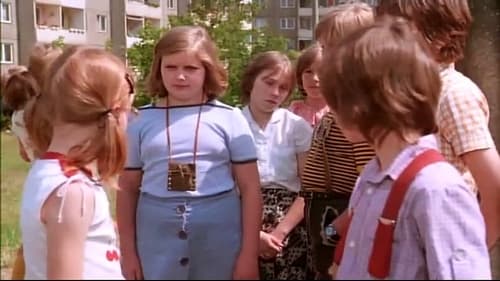
Two girls experience dislike at first sight because of their differences. Then they sort things out.
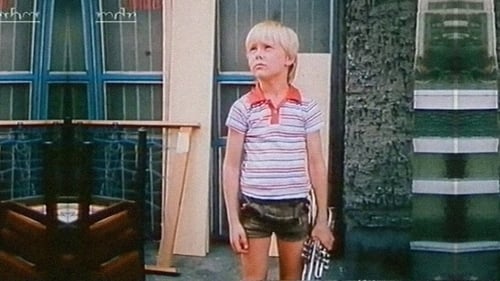
Anton and his family moved into a high-rise building. In order for the new neighbors to accept his trumpet music, he has to perform a little "miracle" with the instrument.

A life-threatening heart attack confines Richard Roth to the hospital bed. There, Richard, who is in his late fifties, asks himself what will remain of him and his life. What happened to his four daughters? Do they take after him? How have they developed? His youngest daughter Nanny, who is still living with her father, gets her three other siblings to Weimar to visit their father.

Gendarm Adam
In a small village in West Prussia in the 1870s, Germans, Poles, Gypsies and Jews live together as neighbors. One night Johann, a German mill-owner, secretly opens the dam gates and floods the mill of his Jewish rival Levin. After his business is ruined and his calls for justice go unanswered, Levin leaves town.

In a backwater town, opera director Andrej Wischnewsky is supposed to put on a production of Mozart's "Don Giovanni".
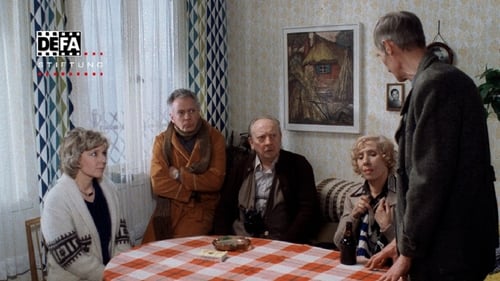
Felix
The successful entertainment artist Ralf Keul must develop his land on the Baltic Sea or else ultimately give it up. Inexperienced yet courageous, he hurls himself into the undertaking, which spares him no unpleasantness. He battles over the transportation and procurement of materials, constantly on the verge of a nervous breakdown, while his craftsmen offer little additional assistance.
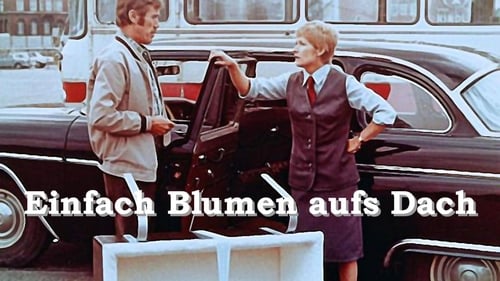
Mechanic Hannes Blaschke and his wife Maxi, who works as a bus driver, have just become happy parents of twins. Now they have a serious transportation problem: Their Trabant is far too small for the grown family that furthermore includes two sons and a dog. Thanks to the support of a state secretary and of his brigade, Hannes acquires a Tschaika – a limousine that is normally restricted to representational purposes – for a small price. Whereas Maxi views the state carriage only as a useful means of transportation, Hannes enjoys the unusual pre-emption he is receiving for the spectacular car. Hannes, who normally is just a humble guy, starts to grate his colleagues with his new affectations. Thus, they teach him an effective lesson: They decorate the state carriage with flowers and thus bring Hannes back down to earth in a humorous way.
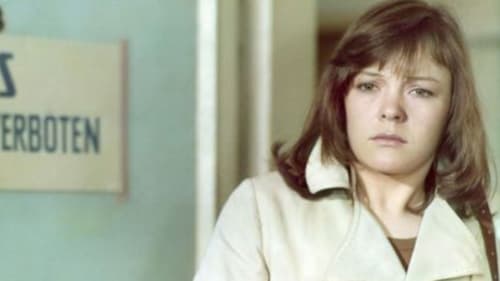
Volkspolizist
Scenes from an East German marriage. A young couple, Sonya and Jens, are very much in love; they get married and have a child. When Sonya wants to go back to work after her maternity leave, they clash for the first time; Jens insists that she remain a full-time wife and mother. Until Death Do Us Part turns an actual police report into a gripping drama, as the director explores the depths of his characters' emotions, driving the conflict to a catastrophic climax.

Lehmann

Last years in the Life of german Dramatican Georg Büchner. Around the year 1830 he and his fellow students try to initiate a revolution in Germany, but they are not successful. Büchner has to leave the country and seeks exile in France and Switzerland, where he falls ill with typhus.

Berlin at the end of the 1940s. Anneliese Weyher is working as a switchboard operator. She is living with her aunt after losing her parents in the war – a stroke of fate that has thrown the young woman off course emotionally. Indifferently, she is doing her work; her private life consists of an affair with a black-marketeer. Even when Anneliese witnesses an armed robbery, committed by infamous Wollnick and his gang, she stays lethargic and apathetic – she keeps silent instead of helping the inspector who is a friend of her aunt. It is not until Anneliese by coincidence meets her former lover, the watchmaker Kurt, that her life seems to take a positive turn.
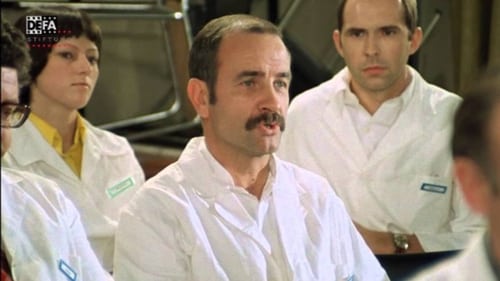
Der Fremde
When Dr. Schmith's proposal for international research on infant mortality is rejected, he decides to leave East Germany and strikes a deal with an escape agency that promises him a leading position at a children's hospital in West Germany. But then the decision is reversed: the project is approved and his international colleagues want Dr. Schmith to head the GDR section. Moreover, he falls in love with his new colleague, Katharina. Schmith initially tries to ignore the arrangements he made with the escape agency, but they blackmail him. Things soon turn deadly...

Professor Bohmann
At the end of the 19th century, German archaeologist Professor Bohmann is searching for the remains of the legendary island Atlantis. But he is not the only one who is trailing the myth. His adversary, the British scientist Sir Grey claims to have already found Atlantis. In different masks and guises, he sets cunning traps to keep off his adversary from finding Atlantis.

This episodic comedy explores love in all its varieties.
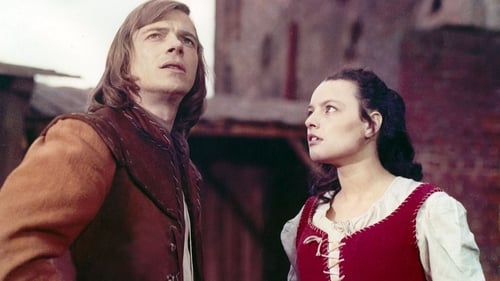
Hans the farmer is drawn into war as a soldier. Returning from the front, having been defrauded of his pay by his own king, he makes his way home. On his trip, he encounters a witch who asks him to fetch the light from a spring. He keeps it when the witch tries to deceive him and he discovers her foul magic. When the light is ignited, a little man appears who must serve the owner of the light, but it only has power if the owner has faith in himself. His courage bolstered, Hans goes to the king once more to demand his wages be paid.

Bahre
For thirty years, Karl Achilles has been working at the chemical collective in Bitterfeld. But now his last day as a master at the plant has come. He is about to retire; even if Karl, who finds ending his working life difficult, wanted to stay on, it would not be possible. Karl’s colleagues have arranged a farewell dinner for the retiring master at an outdoor restaurant. But on his last day of work, before the farewell dinner, he meets all sorts of people: both colleagues and people, who do not work at the plant. A mosaic of the biography of a person who found fulfilment in his work and now has to look for the meaning of his life anew.

Faktotum
Adam, Evchen, and Manni are looking at the moon through their home-made telescope. Evchen isn't interested, and dismisses the moon as a lump of cheese. Manni, who is a big fan of technology, sees satellites and a car driving over the moon's surface. But Adam hears the moon speak, and hears it ask for flowers to cover its surface. From then on, Adam is determined to breed a kind of flower that can grow on the moon.
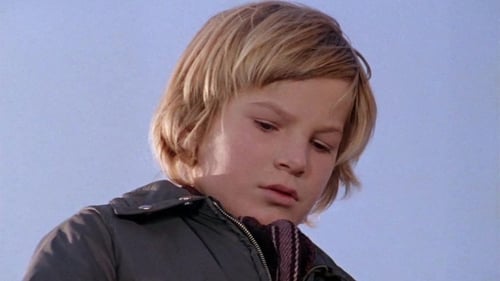
Dieb
Eight-year-old Matthias dreams that he will someday become a pilot and his divorced parents will get back together. He waits yearningly for his ninth birthday because his father has told him the story of Icarus, and promised to take him on a sightseeing flight. When Matthias' father doesn't come home, he is devastated. He runs throughout the city, talks to his friend about the relationships of adults, looks for his father at his desk, and gets himself into conflict with the police. As he sits alone on the roof of a house, he comes to the conclusion that Icarus didn't plummet to the earth because he didn't listen to his father, but rather because his father had forgotten him.

Europe, 1620: The well-known astronomer and mathematician Johannes Kepler, who teaches as a professor in Linz, receives the message that his mother is prosecuted as a witch in Württemberg. The truth behind the allegations is rather simple: His mother has been denunciated by a former friend after an argument with the authorities. Kepler tries desperately to convince the prosecutors of the absurdity of their allegations with rational arguments.

Uwe Polzin, a highly talented biologist publicly stands the defence of his doctorate and this crucial day prompts him to look back on his life so far. These reminiscences are not altogether positive and he and his family still face almost unsolvable problems. For; while Ruth, Uwe's sister, consciously goes without family life and private happiness in order to devote herself fully to her vocation as a doctor; he tries to reconcile career and family. He has found in Alla, his wife - an interpreter - not only a truly loving partner but also someone who shares his basic view of life. Still, their marriage is undergoing a crisis. Uwe's job has become so demanding that he expects her to cope with a great deal of domestic problems. Alla senses that her husband is exploiting her love towards him and that he expects her only to make sacrifices for him. This is why she is contemplating divorce.

Unteroffizier Glinski
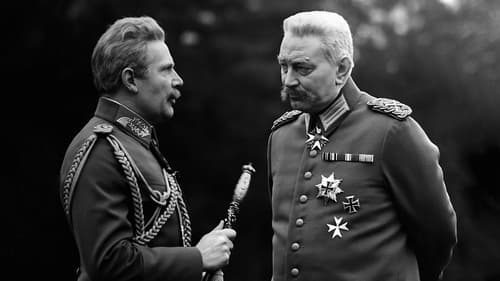
October 1918: Karl Liebknecht is released from prison and Berlin workers celebrate his release. Although WWI is almost over, the German Kaiserreich in vain sends its last reserves to the slaughter. The working class is in a rebellious mood; the uprising of Kiel’s sailors against war and militarism sets off a call for revolution led by Liebknecht. On November 9, Liebknecht declares the Free Socialist Republic of Germany. But pro-Kaiser military and right wing Social Democrats oppose him.

Dr. Barbara Heim, a heart surgeon, and Gunter Heim, a well-known actor, have been married for seven years. They have a six-year-old daughter. Both partners are totally taken up by their work which is physically and mentally demanding. So there is little time left for family life and the strained relations worsen and finally plunge Barbara into a crisis - shortly before their seventh wedding anniversary. At this very point a child dies in hospital, prompting Barbara to ask herself in desperation if - and for how long she can put up with the double burden of career and family. On top of this, she notices that Gunter is starting to compare her to other women.
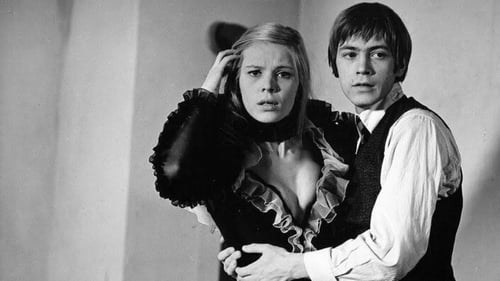
In August of 1914, amidst the public ecstasy surrounding the impending war, Hans Gastl, the young son of a Munich bürger, makes a decision: he will not take part in this war. This resolution signifies a turning point in his life; a farewell to his class and his family.

Erwin Noll










































